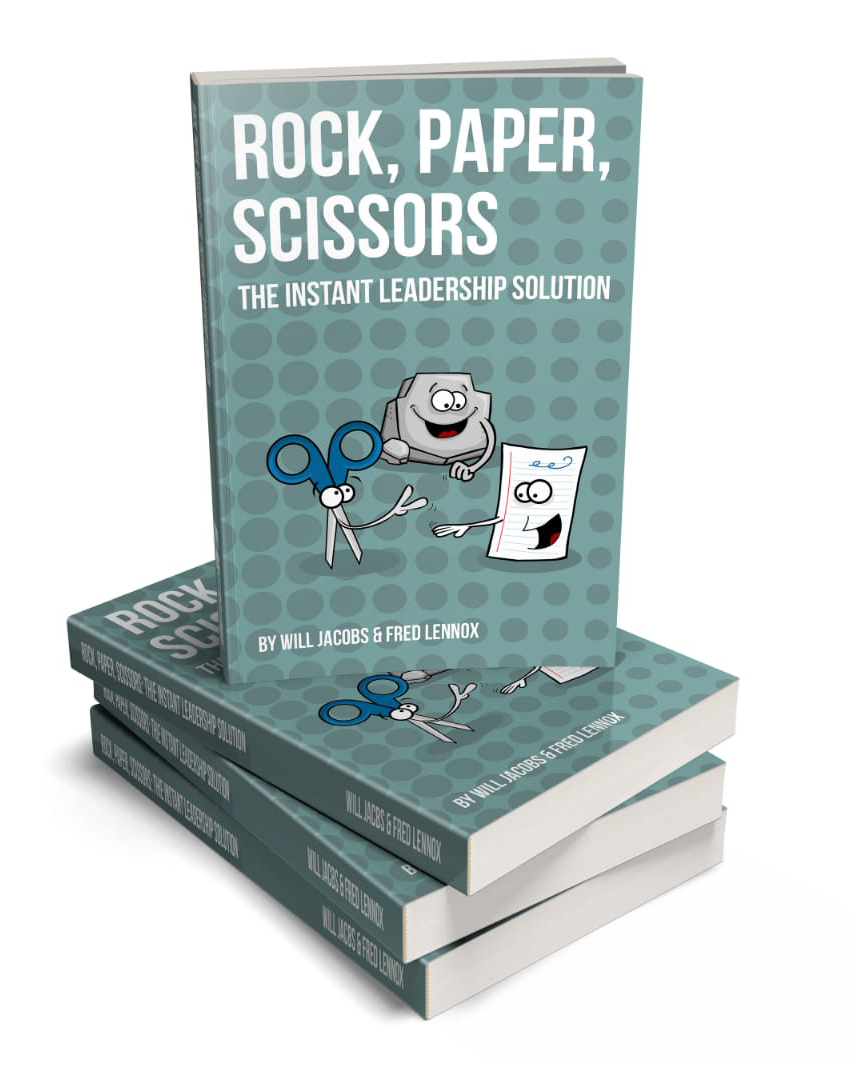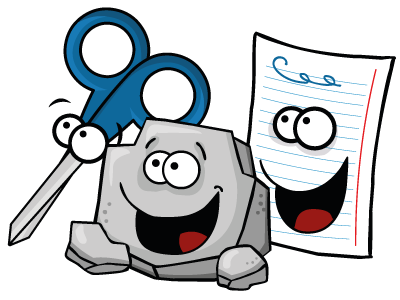
Running with Scissors!
I was approached by a friend in my network and asked for some advice. This gentleman is a mid-career professional in an academic position. From my general observations, he is excellent at his craft and has a proven track record of success and many years of excellent reviews to back this up.
Recently, he as taken a new position with a new supervisor and in the first review, he was shocked to learn that he was marked as “needs improvement”. How could this be? There must be something that the supervisor missed. It was at this point that he came to me to ask for advice.
The question my friend asked was: “There must be some disconnect; how can I show my supervisor what I am really doing?” Of course, I offered to help.
At this point, let me take a step back and explain a bit about the framework that I used to assist him. It is taken from Will Jacob’s and my new book, Rock, Paper, Scissors: The Instant Leadership Solution. Here is an introduction to the overall framework:
“Rock, Paper, Scissors is a practical tool for leading and managing people quickly and effectively. It’s been developed over many years by business leaders who want to improve their outcomes at work, and in their personal lives as well. When you understand what it is and how to use it, you’ll be able to instantly identify what kind of people you’re dealing with and — just as importantly — how you can adapt yourself to work with them in order to create win-win situations”
Will and I have been applying this framework for many years to help our teams and give consultative advice to others. Before we dive into the situation particular to my friend, it would be helpful to summarize the three personality types: Rock, Paper and Scissors:
“Rocks have strong convictions and are persistent and guarded. Papers are inclusive, enthusiastic, and opportunistic. And Scissors are analytical, open-minded, and perfectionistic. Each persona has its own strengths: Rocks are experts in pushing through challenging projects and making firm decisions, Papers are naturals at building relationships and having visionary ideas, and Scissors are adept at problem solving and detailed research.”
Based on our framework, my friend is a complete rock. What I mean by that is that he has very strong convictions on how his job should be done and how success should be measured. This is based on his many years of refining his craft and personal success.
After reading my friend's review, my strong hypothesis is that the supervisor is a scissors. The review is very detailed, heavy on metrics and clearly identifies the area of growth as innovation. Moreover, it clearly states how she measures innovation and offers a suggestion to read a book to learn more about the concept.
To confirm my hypothesis, I send my friend back to his supervisor. I ask him to observe the discussion looking for some traits that could confirm that the supervisor is a Scissors. Will and I call these “tell’s”. The tell’s of a Scissor office are:
- Does it look like a campaign headquarters, with graphs and charts pinned all over the notice boards?
- Is it crammed with shelves of neatly labelled binders, all analyzing the various aspects of the business?
- Is the desk taken up with two monitor screens so the manager could see all their data in one go?
- The response came back as a resounding YES! Good, I told my friend, now we are making some progress.
Working with a scissors can be really rewarding if you both agree on what is important. Given this, I decided to lean-in and discuss the review’s area of improvement with my friend.
I said: “So the issue seems to be with innovation, what do you think?”
And my friend replied: “Yes, this is the problem. The way she is measuring innovation is all wrong!”
This exchange is not at all surprising. In fact, it is common Rock/Scissor behavior. Will and I explain this relationship:
“Rocks can easily clash with Scissors because Rocks go with what they ‘know’, whereas Scissors love to investigate all the possible options.”
This is seemingly what is happening in this case. To help my friend internalize this situation, I needed to help explain “why” the innovation assessment matters.
After some investigation, I concluded that it was in the goals of the supervisor to bring innovation into my friend’s department. Being a scissors, the supervisor selected the metric and suggested the book to reinforce why this is a good measure and expected quick adoption. This worked with some in the department (I expect fellow scissors) who were flexible and open minded, but not with my friend.
In the end, I took the approach to be firm by stating that the adoption of this metric was not optional and further, I highly suggested that he read the book. After a few weeks, he came back to me and advised that he learned a great deal from reading the book and was excited to try some of these new techniques at work.
In the end, to be successful my friend needed to “get on board” with the innovation measurement.
Did I do right by my friend? How would you have approached this?
If you are interested in joining the conversation, please follow us on our LinkedIn Business Page or at RPS.Academy.
Latest Blogs
Big challenge, tight deadline, no problem
Nurturing and Lifting Rocks
The speed of change
Bonjour, Ciao, Ni hao, Hello
No two people are the same!




